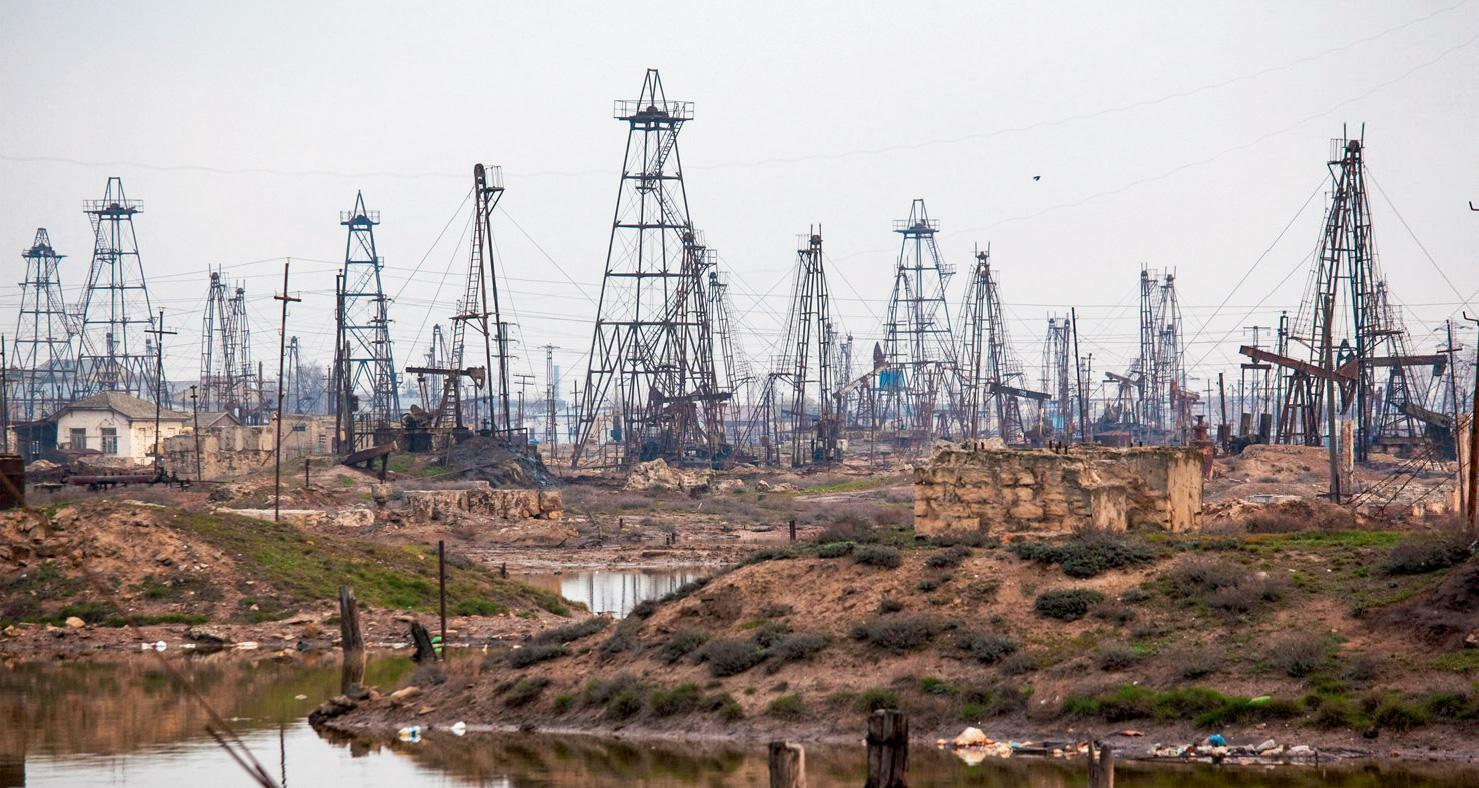
The smell of it greets visitors on arrival, and from the shores of the Caspian Sea on which the city is built the tankers are eternally visible. Flares from refineries light up the night sky, and you do not have to travel far to see fields of "nodding donkeys", small piston pump oil wells about 6 metres tall, that look almost festive in their bright red and green livery.
It will be an interesting setting, in a few months' time, for the gathering of the 29th UN climate conference of the parties.
Mukhtar Babayev, Azerbaijan's minister of ecology who will chair the two-week summit, likes to position the country at the crossroads of the world. He says it can provide a bridge between the wealthy global north and the poor global south; as a former Soviet bloc country, between east and west; and between its fellow oil and gas producers, and the countries that provide its export market.
Azerbaijan is where the world's first oil wells were dug in the 1840s, more than a decade before the US dug its first well. It is one of the most fossil fuel dependent economies in the world: oil and gas make up 90% of its exports, and provide 60% of the government's budget.
This brought riches. "Oil and, more recently, gas have been largely responsible for the remarkable rise in living standards in Azerbaijan since the late 1990s," according to the International Energy Agency.
But the country is moving to renewable energy, with plans to expand wind and solar energy. An interconnector is planned, to bring this low-carbon power to eastern Europe, under the Black Sea to Bulgaria, Hungary and Romania.
"Azerbaijan would like to share our experience," Babayev said. "We would like to invite all the countries, especially the fossil fuel producing countries, to be together in this process. Because we understand our responsibility. We think that we can do more, and together."
Bu hikaye The Guardian Weekly dergisinin May 24, 2024 sayısından alınmıştır.
Start your 7-day Magzter GOLD free trial to access thousands of curated premium stories, and 9,000+ magazines and newspapers.
Already a subscriber ? Giriş Yap
Bu hikaye The Guardian Weekly dergisinin May 24, 2024 sayısından alınmıştır.
Start your 7-day Magzter GOLD free trial to access thousands of curated premium stories, and 9,000+ magazines and newspapers.
Already a subscriber? Giriş Yap

No 298 Bean, cabbage and coconut-milk soup
Deep, sweet heat. A soup that soothes and invigorates simultaneously.

Cottage cheese goes viral: in reluctant praise of a food trend
I was asked recently which food trends I think will take over in 2025.

I'm worried that my teenage son is in a toxic relationship
A year ago, our almost 18-year-old son began seeing a girl, who is a year older than him and is his first \"real\" girlfriend.

BOOKS OF THE MONTH
A roundup of the best recent science fiction, fantasy and horror

Dying words
The Nobel prize winner explores the moment of death and beyond in a probing tale of a fisher living in near solitude

Origin story
We homo sapiens evolved and succeeded when other hominins didn't-but now our expansionist drive is threatening the planet

Glad rags to riches
Sarcastic, self-aware and surprisingly sad, the first volume of Cher's extraordinary memoir mixes hard times with the high life

Sail of the century
Anenigmatic nautical radio bulletin first broadcast 100 years ago, the Shipping Forecast has beguiled and inspired poets, pop stars and listeners worldwide

How does it feel?
A Complete Unknown retells Bob Dylan's explosive rise, but it als resonates with today's toxic fame and politics. The creative team expl their process-and wha the singer made of it all
Jane Austen's enduring legacy lies in her relevance as a foil for modern mores
For some, it will be enough merely to re-read Persuasion, and thence to cry yet again at Captain Wentworth's declaration of utmost love for Anne Elliot.